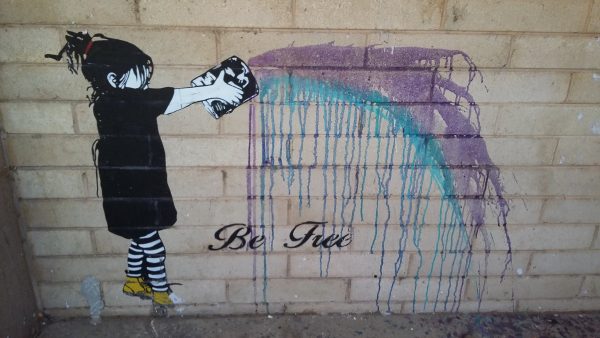
Sometimes writer’s block wears a disguise
After I finished my PhD in Creative Writing I went through a prolonged period of writer’s block. I couldn’t write anything. I couldn’t even read. I felt no desire to put words on a page. There were no stories bouncing around inside my head. Ideas no longer blossomed in the middle of the night. It was like driving along a highway. Everything was banal and unchanging: there was no beauty and no joy. But I didn’t realise I had writer’s block. I told myself I was burned out. A PhD is an exhausting marathon. I’ve been lucky, I guess: before this the ideas were always reliably there, even if I didn’t have time to catch them. So I thought I was someone who didn’t get writer’s block. I didn’t recognise it.
Only now, when the ideas and words are flowing again, have I seen it for what it was. And I’ve realised I didn’t recognise it because it didn’t look like a ‘thing’, a solid, rectangular block sitting in the middle of the road to creativity. Instead it was a pocketful of excuses: recurrent ideas and anxieties that robbed me of my confidence and my sense of myself as a writer. Now that I’ve grabbed these whispers and dragged them screaming into the light of hindsight I can see that together they form a seething shape that looks suspiciously like a block. So I thought I’d share a few in case they’re hiding in your pockets and cupboards too. That way you’ll recognise them when you find them.
The Voice of Writer’s Block
“I don’t have anything to say…” – true, it’s all been said before. And if you look around, someone else is probably saying it right now. But they are not you and they not saying it from your experience and perspective. So just say it and someone is going to appreciate your unique perspective.
“I’m too busy with my real job” – okay, it’s important to earn money, but sometimes we prioritise by accident, not by design. I realised I was prioritising my own writing to the bottom of the pile even when I could have made space for it. Sometimes ‘too busy’ hides a sense that what other people want from you is more important than what you want for yourself. The solution is to prioritise consciously and place greater value on what you want to do.
“My cat/dog/child/cactus needs me” – yep, they probably do. But how much? I’m guessing not 24/7. Now’s a great time to teach them a little bit of independence.
“I’m not a real writer” – no matter where you are on the climb up Writer Mountain, there’s always someone ahead of you. Someone who hasn’t got a publisher thinks the person who has is the ‘real writer’. Someone who has only one book thinks the person with three is. And so it goes on. If you put pen to page, you’re a real writer. Forget comparing yourself. Just write!
“But none of this helps me overcome writer’s block,” I hear you say. “It just makes me argue with myself.” So what did I do once I recognised these voices and saw them for what they were? Well, that’s a whole other blog post.


